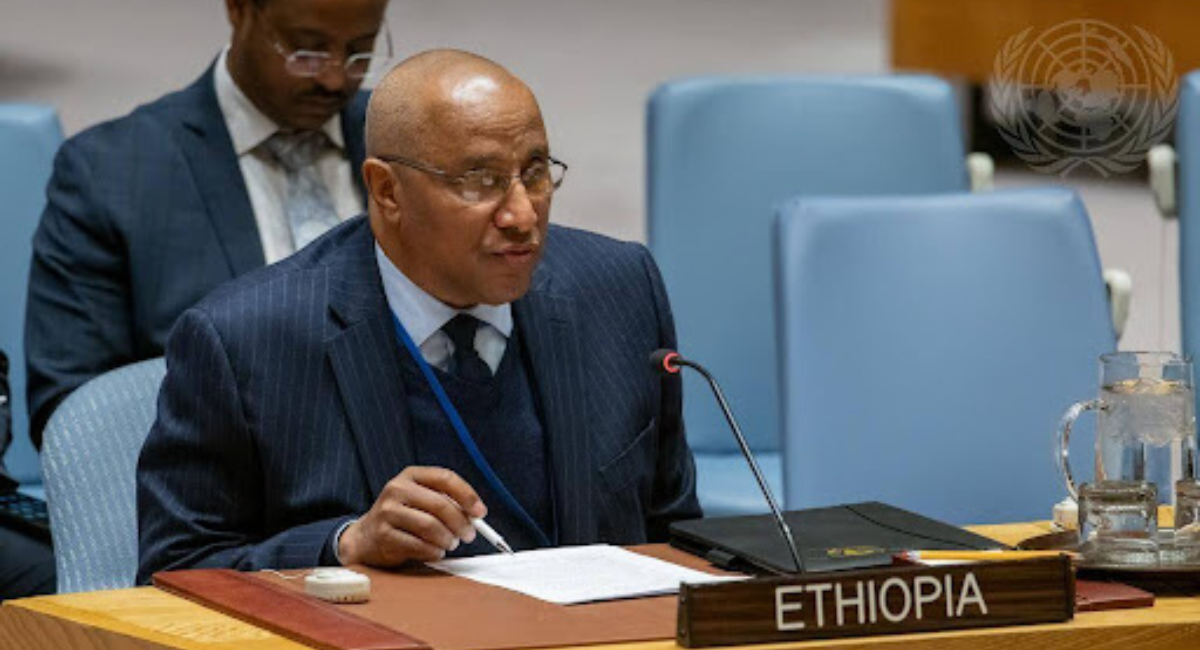Tesfaye Yilma Sabo, Ethiopia’s Permanent Representative to the United Nations, addressing the Security Council in New York, US, in December 2024.
The majority of the 47 countries on the UNHRC voted in favour of keeping an expert focused on the protection of LGBTQ people. However, 15 countries voted against it including nine in Africa.
by Beza Lealem
Ethiopia, a member of the United Nations Human Rights Council (UNHRC), has voted against a resolution proposing that the UN body should have an expert dedicated to protecting the human rights of LGBTQ+ people.
The July 7 vote was whether to renew the mandate of the only human rights expert within the United Nations system that is specifically dedicated to addressing violence and discrimination based on sexual orientation and gender identity (SOGI). Known as the council’s ‘Independent Expert on SOGI’, the role was created in 2016 and renewed in 2019 and 2022. South African scholar Graeme Reid currently holds the post.
While a majority (29) of the 47 countries on the United Nations Human Rights Council voted in favour of extending the role for three more years, 15 countries voted against it, including Ethiopia.
“This vote is a stark reminder that Ethiopia continues to refuse its obligation to uphold the value of human life for all its citizens…We know intimately what this means for LGBTQIA+ Ethiopians. It means the Ethiopian government is wilfully failing to protect us from violence, whether at the hands of non-state actors like family, neighbours, and society at large, or state actors such as the police,” wrote House of Guramayle, an advocacy for LGBTQIA+ people in Ethiopia and the international diaspora, in an Instagram post in response to the news.
“It manifests as discrimination in access to healthcare, both physical and mental, and in our exclusion from full participation in social and economic life. We will not be silent. We will continue to sound the alarm and raise our voices until our country recognises and respects our basic human rights,” concluded House of Guramayle.
Of the countries that voted against the resolution, the majority are in Africa: Algeria, Burundi, Cote d’Ivoire, the Democratic Republic of the Congo, Ethiopia, Gambia, Malawi, Morocco and Sudan, with the rest in the Middle East and Asia (Kuwait, Qatar, the Maldives, Bangladesh, China and Indonesia). Two African countries, Benin and Ghana, abstained from the vote alongside Kyrgyzstan.
Kenya and South Africa were the only African nations on the council to vote in favour of keeping the role dedicated to LGBTQ+ people, with the other countries being mainly in Latin America, Europe and East Asia. At any given time, only 47 of the 193 UN General Assembly member states are elected to the Geneva-based UN Human Rights Council, for staggered three-year terms by region.
Since the resolution was successfully adopted by the UN human rights body, international LGBTQ+ advocates have hailed the vote as a victory, despite the opposition of a significant number of countries.
“The renewal of this mandate is a spark of hope in a time when reactionary powers worldwide are trying to dismantle progress that our communities fought so hard to achieve…No human being should face violence and discrimination — and there is simply no exception to that,” said Julia Ehrt, executive director at ILGA World, in a statement. ILGA, the International Lesbian, Gay, Bisexual, Trans and Intersex Association, is a worldwide federation of more than 1,900 organisations from over 160 countries and territories campaigning for LGBTQ+ human rights.
“With this vote, states showed they can live up to their commitment to leave no one behind. We will continue working with the [United Nations Human Rights Council’s] independent expert on SOGI [sexual orientation and gender identity] to ensure they turn their pledge into concrete actions,” she added.

